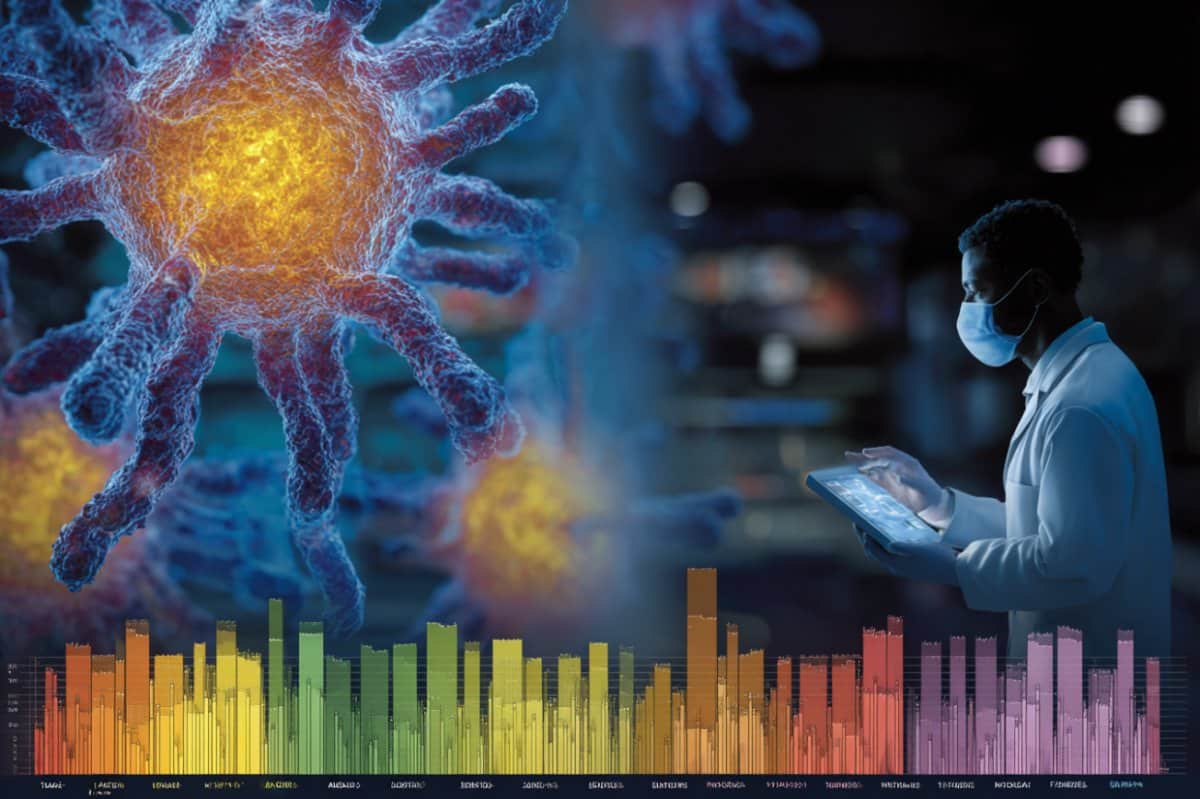Q: What is this study trying to discover about MS?
A: Researchers aim to understand how genetic risk factors and immune response to the Epstein-Barr virus may interact to trigger multiple sclerosis before symptoms appear.
Q: What method are they using to explore this connection?
A: The study will use a technique called “recall by genotype” to group participants based on their DNA and identify early biological signs of MS in people who are genetically at higher risk.
Q: Why is this research important for the future of MS detection?
A: By revealing early markers and biological changes before diagnosis, the research could lead to predictive tools, early intervention strategies, and better understanding of how MS develops.
Summary: Researchers are launching a groundbreaking study to investigate how genetics and the Epstein-Barr virus may work together to trigger multiple sclerosis (MS). Using a method called “recall by genotype,” the team will compare biological traits in people with high and low genetic risk—long before symptoms arise.
The goal is to uncover early warning signs and clarify why only some people exposed to Epstein-Barr go on to develop MS. This could transform early detection and guide future preventative treatments for this chronic and often disabling disease.
Key Facts:
- Genetic Targeting: The study will use genetic profiles to detect early MS risk.
- Virus Link: Epstein-Barr virus is a key focus, as it’s a suspected trigger in MS.
- Australian First: This is the first study in Australia to use “recall by genotype” for MS.
Source: University of South Australia
In a major step towards early detection, University of South Australia researchers are investigating the biology behind multiple sclerosis (MS) to help predict people’s genetic risk of developing the disease, long before any symptoms appear.
Funded by an MS Australia Incubator Grant announced today, the Australian-first study will use a powerful new research method known as ‘recall by genotype’ to explore genetic causes of MS.

Specifically, the study will explore links between MS and the Epstein-Barr virus – a common virus best known for causing glandular fever, but increasingly believed to be a trigger for MS.
MS is a chronic autoimmune disease that disrupts communication between the brain, spinal cord and body. Affecting more than 33,000 Australians, the exact cause of MS remains unknown, though genetics and environmental factors are thought to play a key role.
Lead researcher, UniSA’s Dr David Stacey, says the research aims to untangle how the Epstein-Barr virus might lead to MS in some people but not others.
“For many years we’ve known that the Epstein-Barr virus is a likely precursor for MS,” Dr Stacey says.
“But because the virus affects up to 90% of the population, it’s difficult to pin down why some people go on to develop MS while others don’t.
“We believe the way a person’s immune system responds to the Epstein-Barr virus may be a key factor, and genetics can help us uncover that.”
The study will calculate MS genetic risk scores for more than 1000 South Australian participants without an MS diagnosis, then compare biological traits in a subset of participants with either high or low genetic risk.
“By grouping people based on their genetic profile, we expect to find those with a high genetic risk for MS will also show biological differences – even if they don’t have the disease,” Dr Stacey says. “That could reveal how the Epstein-Barr virus and MS are connected and identify early warning signs or biomarkers for MS.”
To enable this study, the researchers will use an innovative research design called ‘recall by genotype’ – or RbG for short. RbG studies use naturally occurring genetic variants that are strongly associated with a disease to group people for research. Participants are then ‘recalled’ for further testing based on their DNA, allowing researchers to study differences in a more targeted and reliable way.
The researchers have been working to establish resources to enable RbG studies in Australia, which until now have not been possible. This study will therefore help to establish standard operating procedures for participant recall and tackle important ethical questions about sharing genetic risk with research participants.
“If we identify people who are at risk of developing MS, we need to consider how – and whether – to share that information, particularly as this information may not yet be clinically actionable,” Dr Stacey says.
“This study will explore those ethical, legal and social questions to guide how future studies approach personal genetic risk.”
Ultimately, the research team – which includes collaborators from the Perron Institute and the University of Adelaide – hopes the study will pave the way for larger investigations and help support the development of early diagnostic tools and future preventative strategies for MS.
About this genetics and multiple sclerosis research news
Author: Annabel Mansfield
Source: University of South Australia
Contact: Annabel Mansfield – University of South Australia
Image: The image is credited to Neuroscience News






